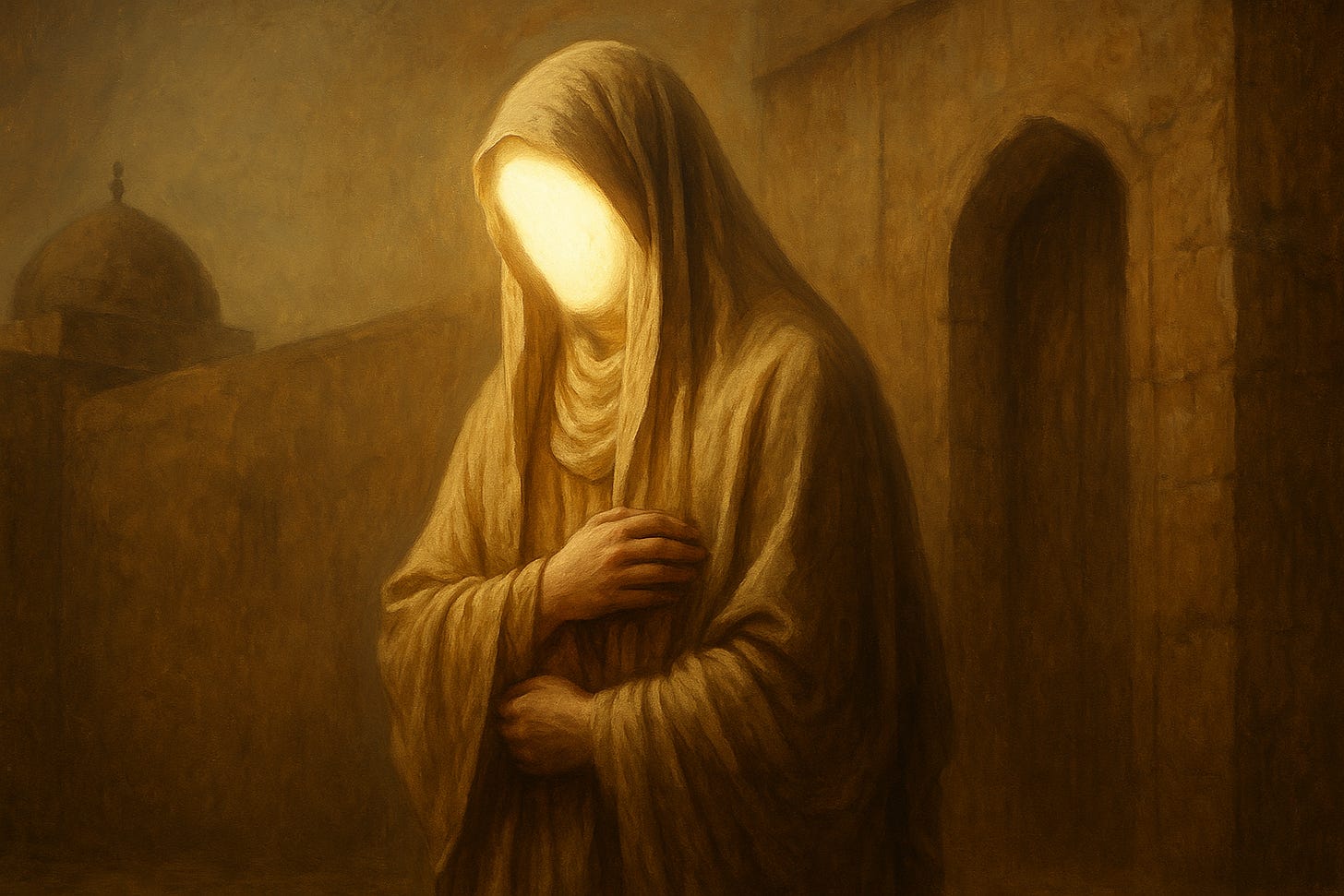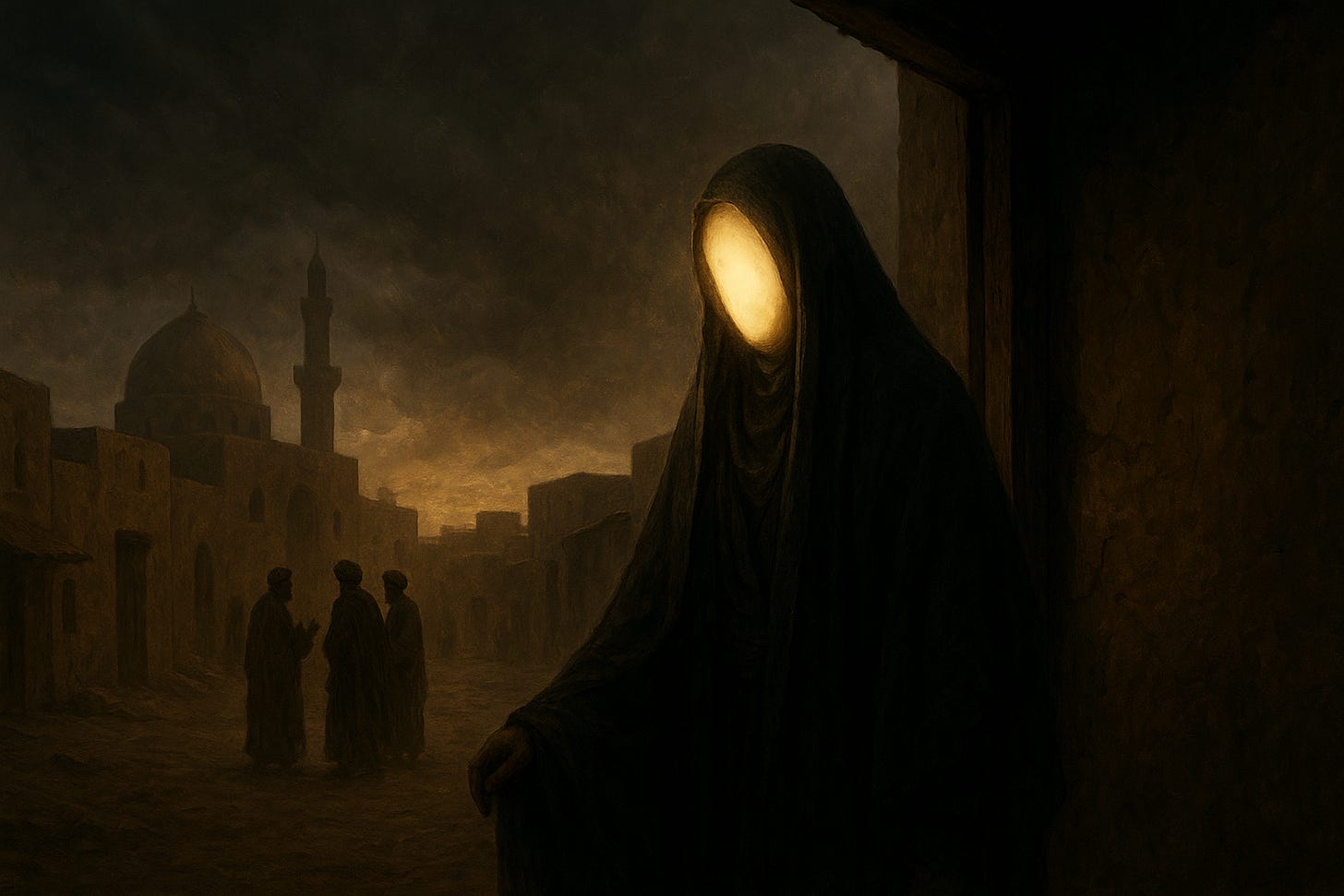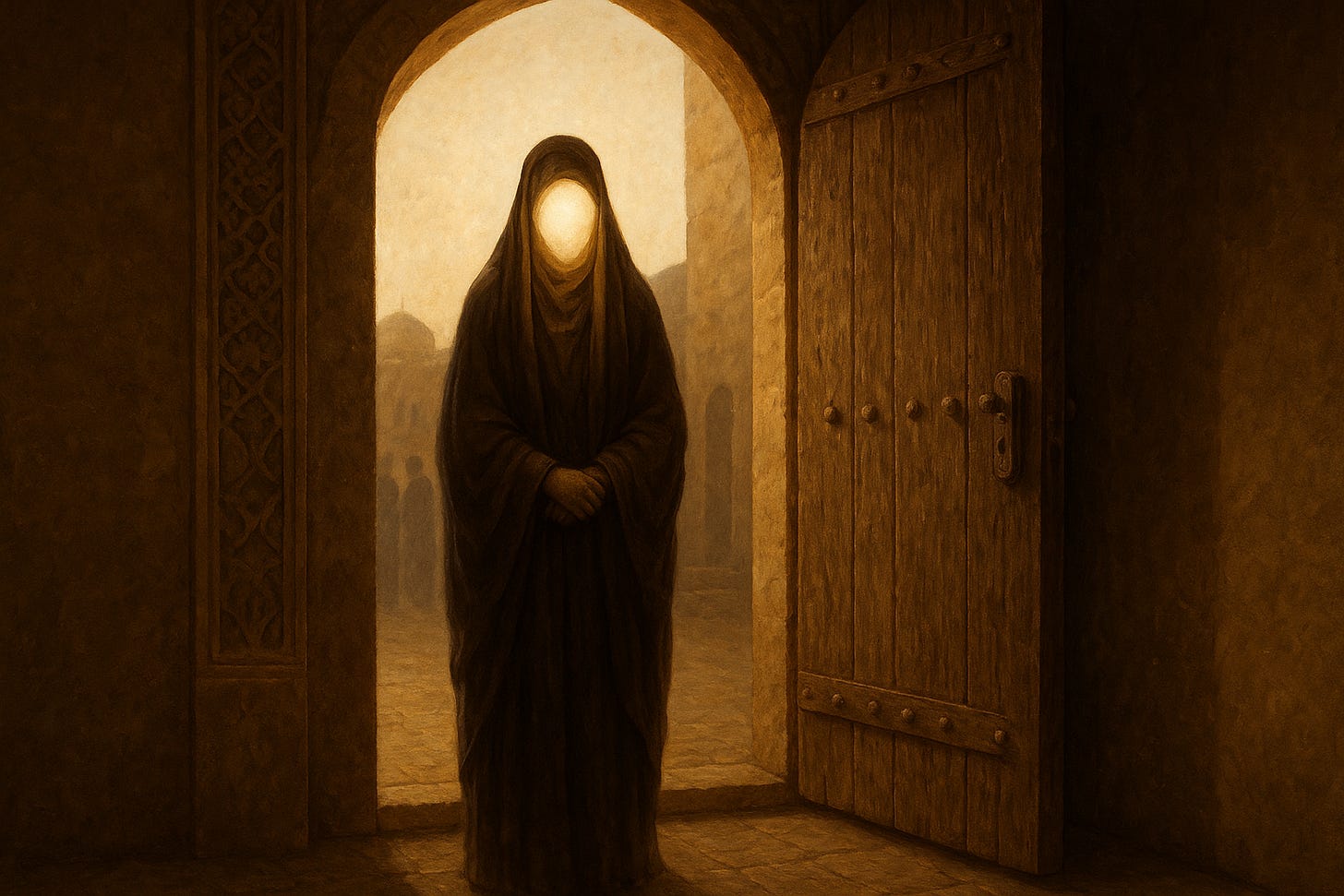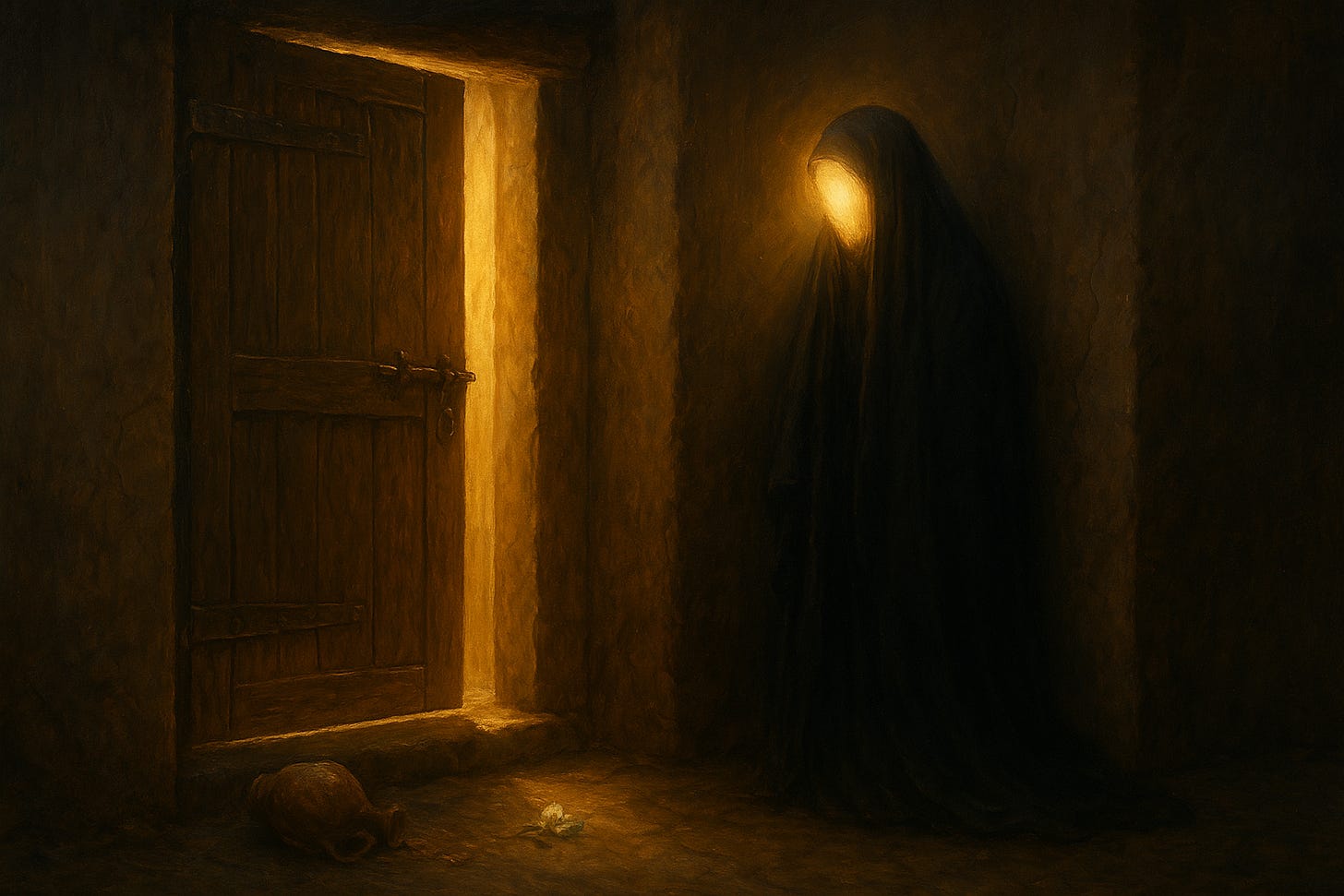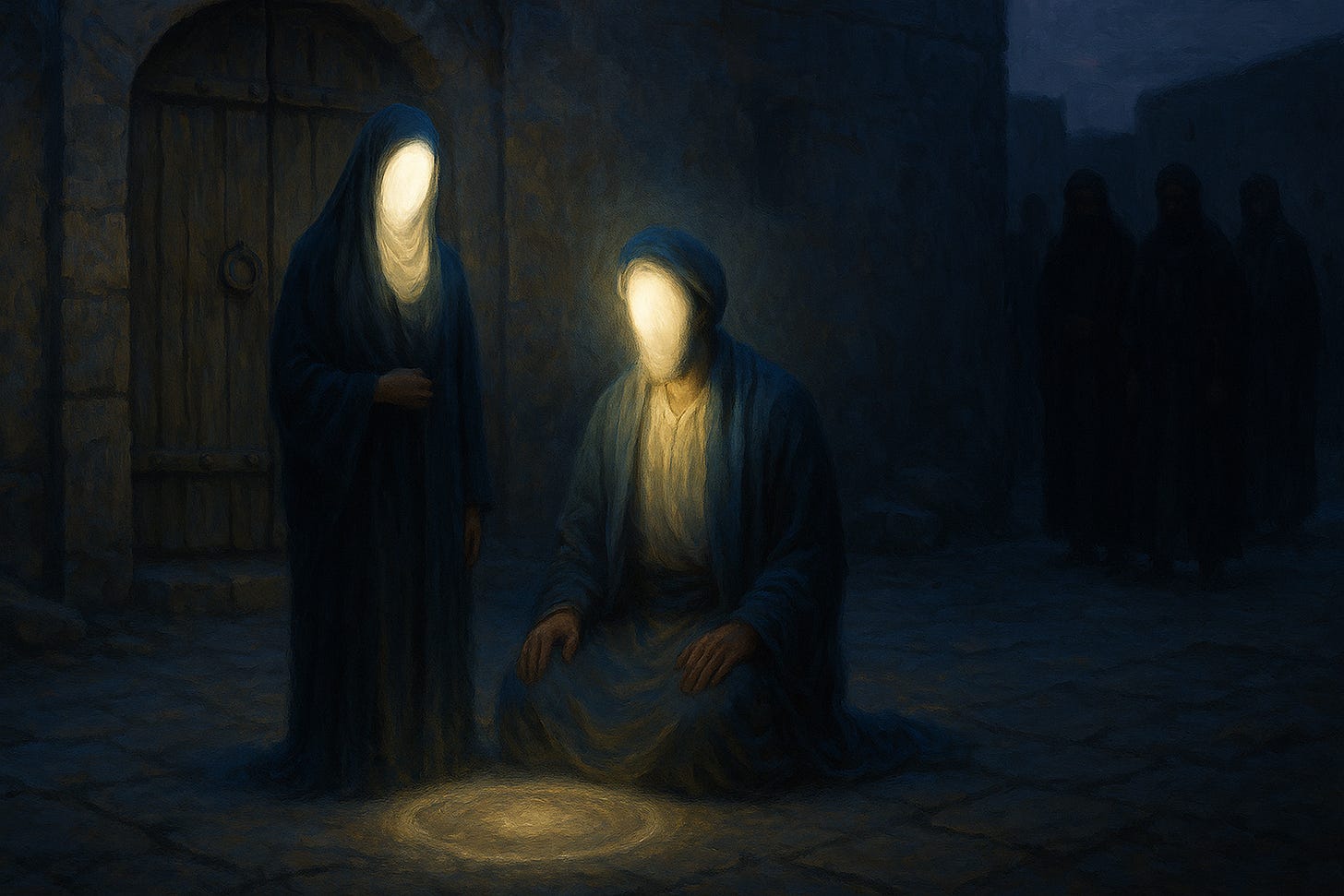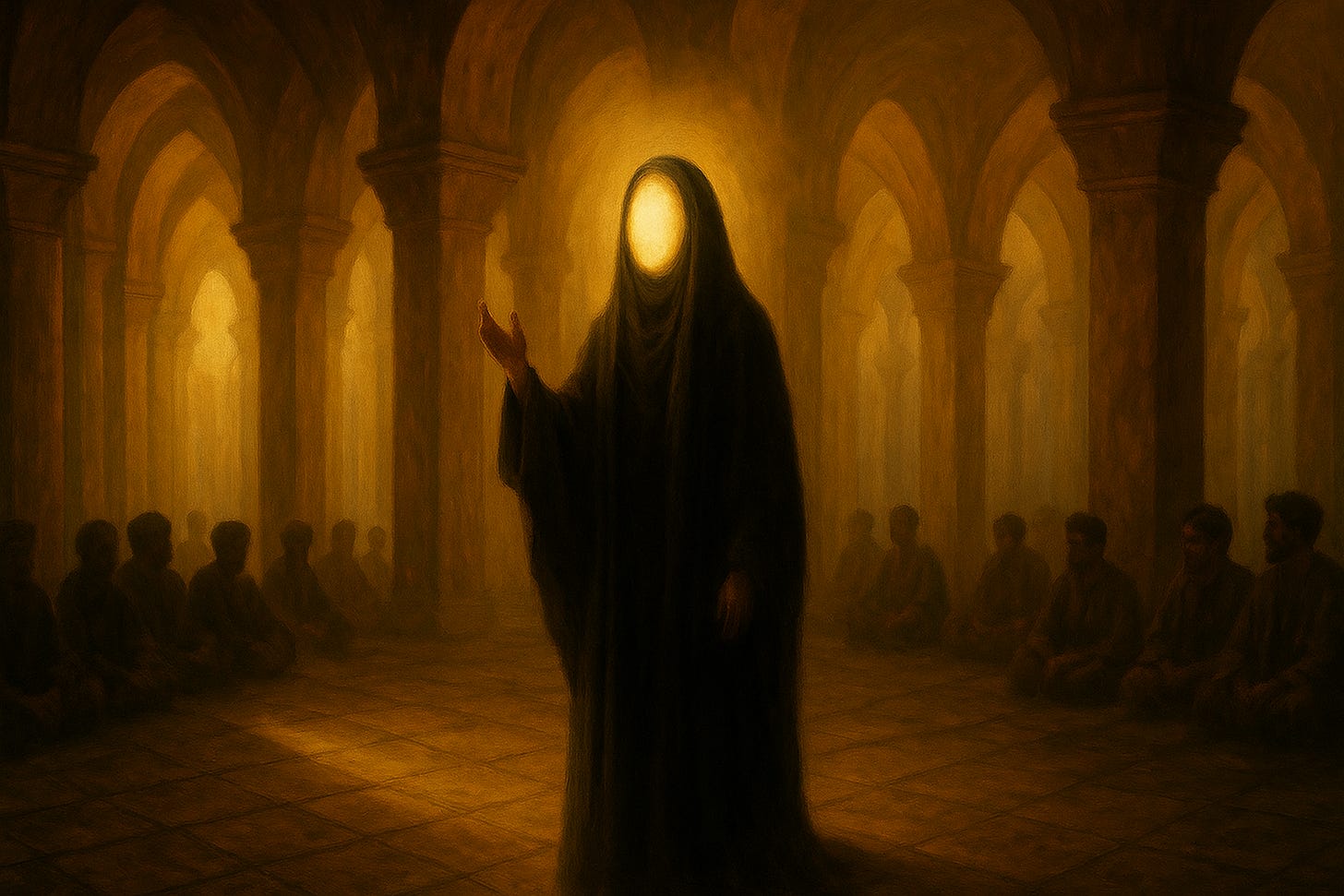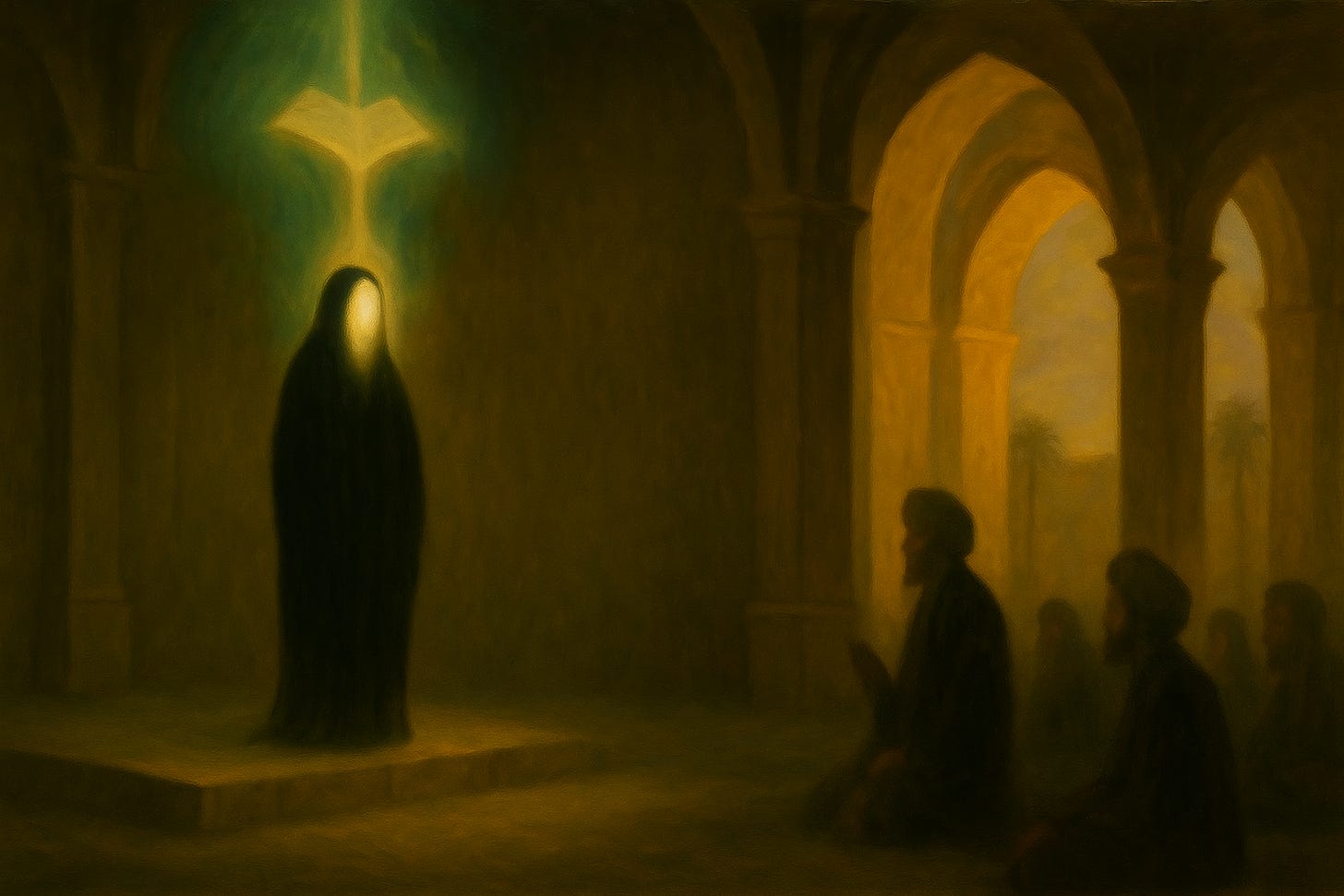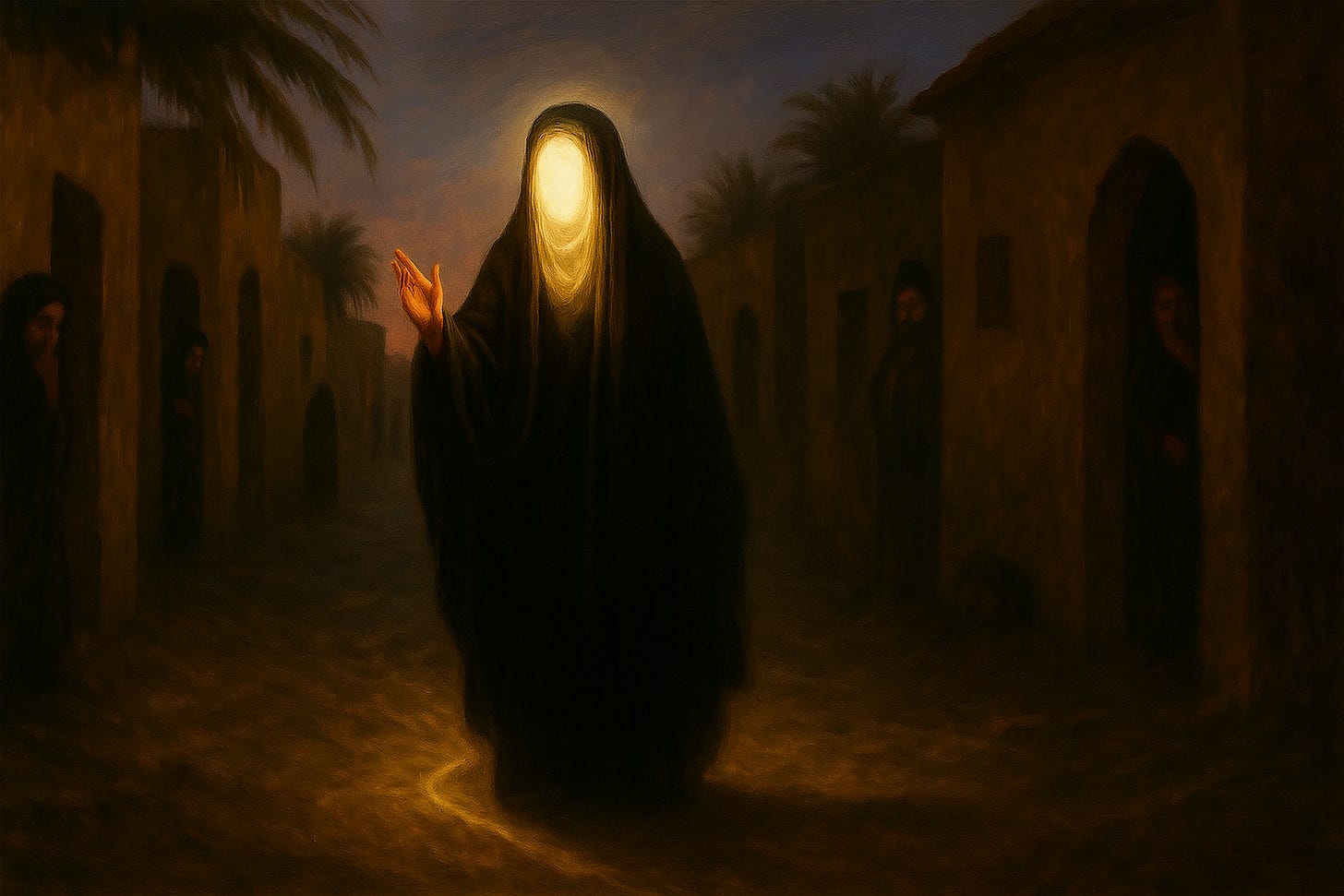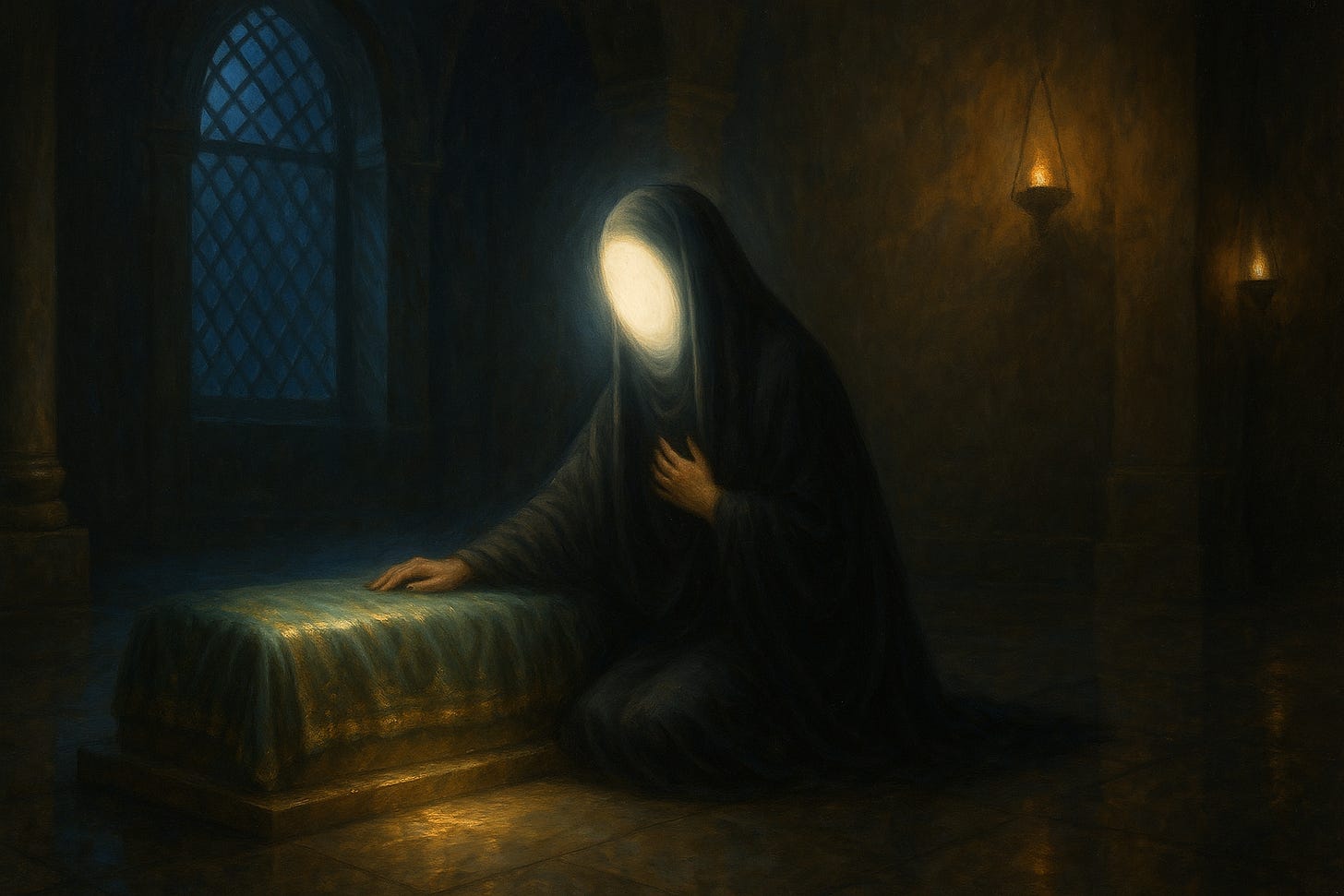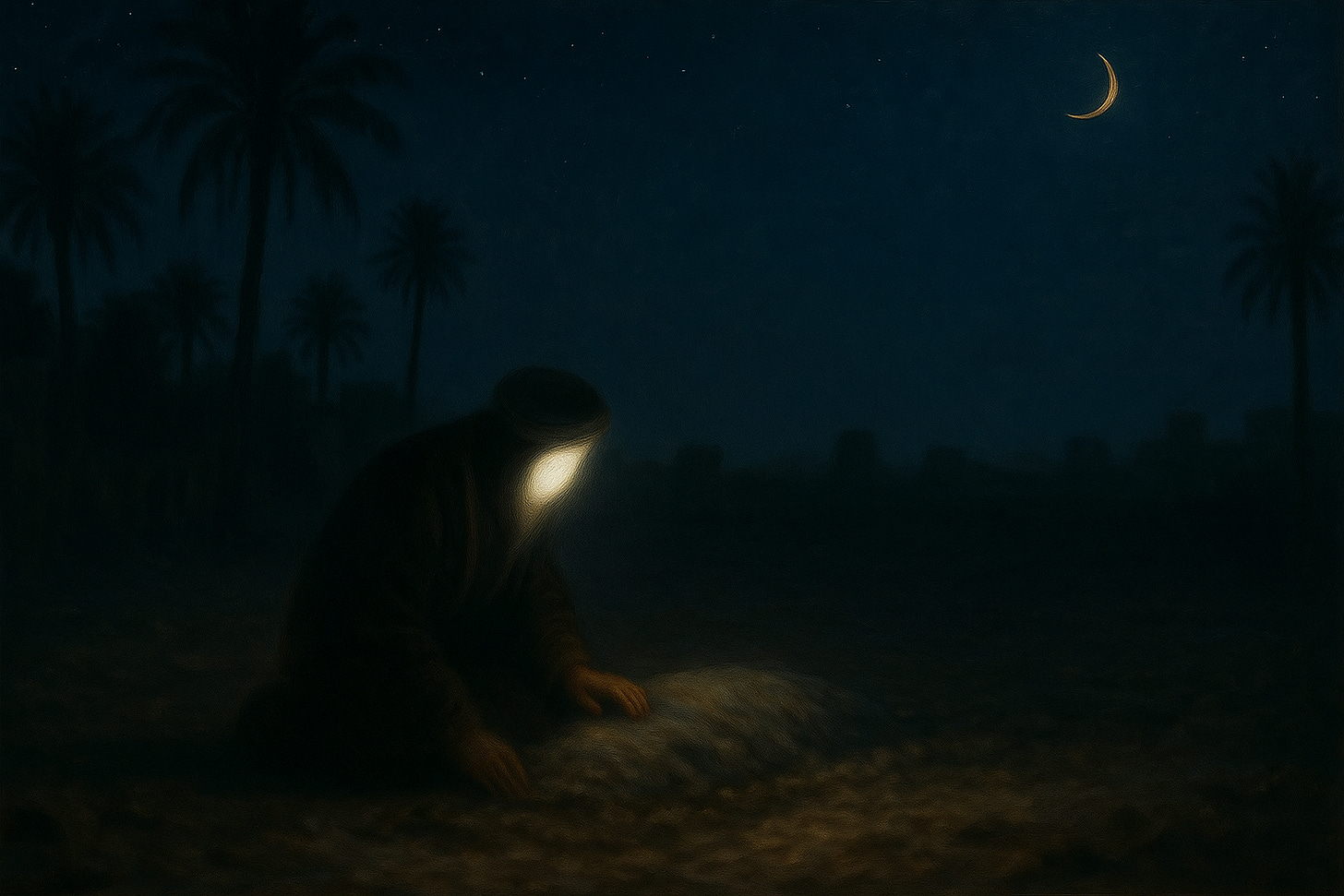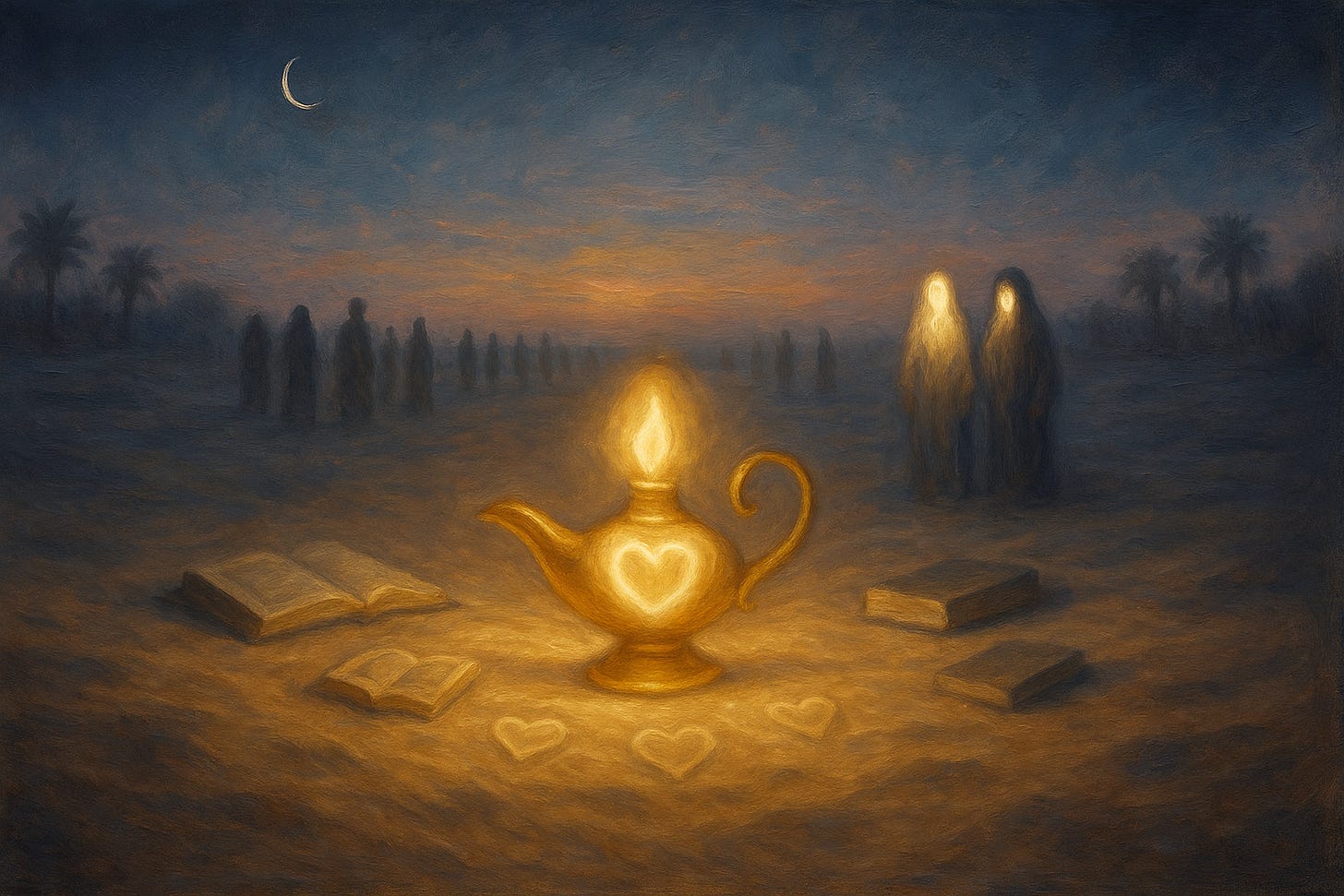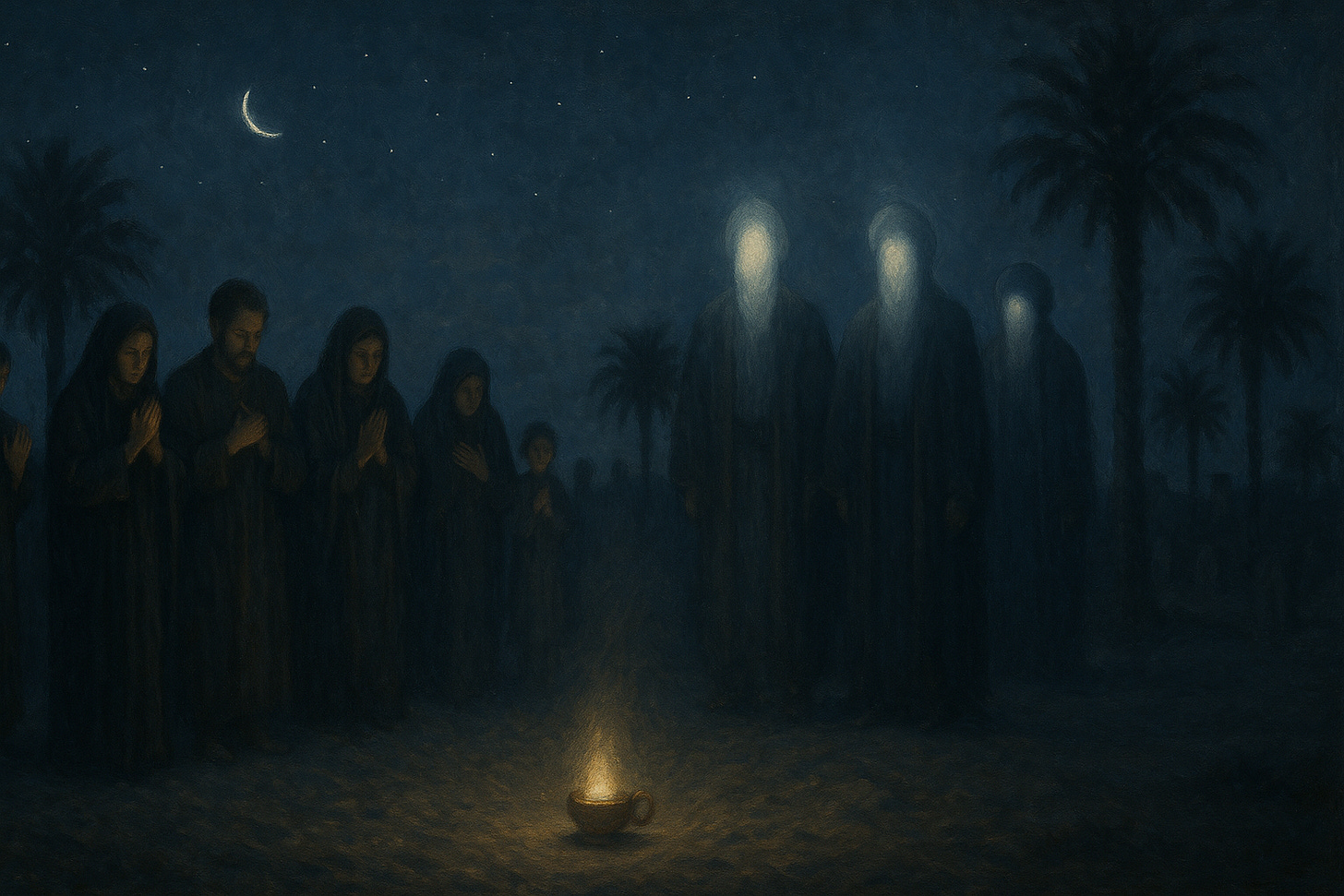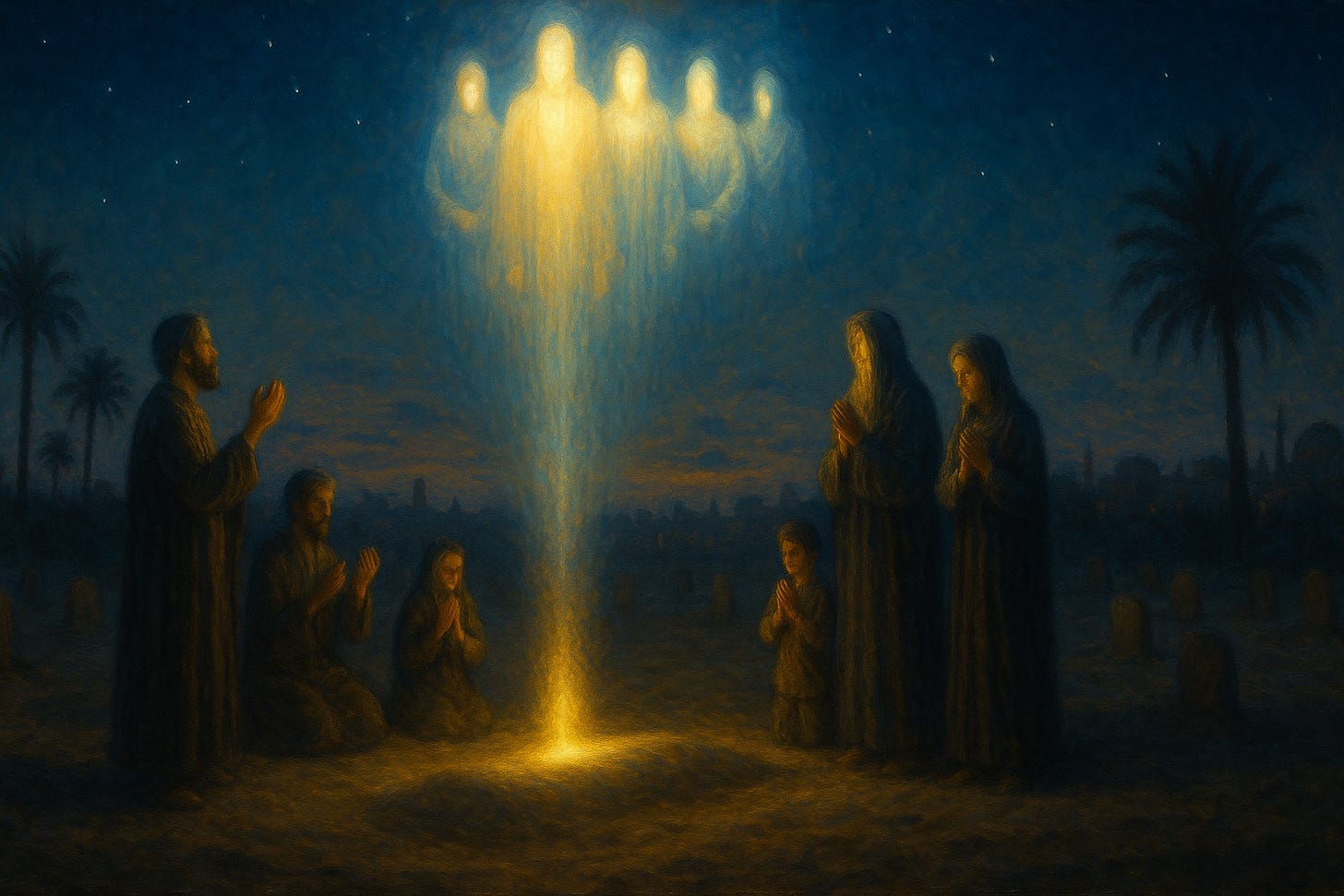[2] Fatimiyyah Maqtal - When Heaven Wept: The Martyrdom of Fatima al-Zahra (AS)
This is a series of maqatil (martyrdom narratives - devotional recitations recounting the martyrdom of Sayyida Fatima al-Zahra (AS). The Daughter of Light, the Voice of Truth, and the Soul of Service
The Departure of the Radiant One
O daughter of the Prophet, light of Zahra that illumined the world, mother of Hassan and Hussain, solace of the truthful, you departed this world with a heart shattered by grief, and left in your wake a path of luminous patience for all who love truth. Today we remember not only your virtues, but the weight of suffering you bore to safeguard the message of your father (SAWW) and the guardianship of your husband, Amir al-Mu’minin, Ali ibn Abi Talib (AS).
The Storm After the Prophet’s Passing
Your life began in purity and ended in sanctity, yet between those two horizons lay storms that would have crushed mountains. In the days immediately after the passing of your blessed father—mercy to the worlds—Medina changed. The streets that once trembled with revelation fell silent, and a sudden shadow crept over the Ummah. While your home was still heaving with grief, while the Prophet had hardly been buried, a council gathered in Saqifah. What should have been a gathering to console and to obey the Prophet’s final instructions became the scene where the covenant of Ghadir was cast aside, and the right of Ali (AS)—the brother, the appointed guardian, the one raised by the Prophet, declared before the multitude—was usurped.
The Weight of Betrayal
How heavy those moments were for you, O Zahra. You who knew the truth not by report but by certainty; you whose soul was mirror to the Qur’an itself. You saw the Ummah veer, and yet you did not turn away. You stood, a single woman with a broken heart, as the Ummah’s conscience.
The Door and the Wall
And then came the day that broke the hearts of lovers until the end of time. They came to the threshold of your house—the house the Qur’an had purified, the house wherein angels descended, the house that cradled the people of the cloak. They threatened it with fire, and in that assault the sanctity of your door was violated. In their cruelty, they crushed you between the door and the wall. Your ribs were broken. Your unborn child, Muhsin, returned to his Lord, never seeing the light of day. The world will forever weep for the door, for the cracked rib, for the fallen son, for the tears of Hassan and Hussain, for Zaynab and Umm Kulthum who witnessed what should have made the heavens cry blood. Yet you bore it with the silence of those who entrust their cause to Allah, even as that silence spoke volumes to the generations to come.
The Seized Guardian and the Patient Lion
And they dragged Ali (AS)—Lion of God, gate of knowledge, the one who struck down Khaybar—by force to the court, seeking his pledge. What is allegiance worth when it is extorted at the point of a spear? What is authority that trembles before a woman’s voice and fears the remembrance of Ghadir? Ali (AS) was patient for the sake of Islam’s survival, restraining the hand that once defended the Prophet on every battlefield, lest the very roots of faith be torn out. And you, O Zahra, stood by him, your pain a shield for his patience, your tears a prayer for the Ummah’s salvation.
The Usurping of Fadak
Then they seized Fadak—the garden gifted to you by your father (SAWW), a rightful possession, a sign of trust and a means for charity. You did not seek land for luxury, nor wealth for pride; you sought it for justice and to provide for the poor, for the Prophet’s household, and for the cause of God. When it was usurped, you did not retreat to bitterness. You entered the mosque, veiled in awe, and the assembly stilled. Like your father, you began with praise of the Lord, testifying to His oneness, to the mission of the Prophet, and then you delivered what history would come to know as the Sermon of Fadak—an ocean of tawhid, law, ethics, and the rights of leadership.
The Voice of Fadak
You reminded the people that the Qur’an is a living covenant, not a banner to be waved when convenient and folded away when it burdens the powerful. You explained zakat, prayer, justice, and the Prophet’s trust in Ali (AS). You argued with proofs from revelation and with the testimony of the community itself that Fadak was yours—first as a gift, then as inheritance, and always as a trust to be used in the path of God. But your aim was greater than a garden: you were calling the Ummah back to its pledge at Ghadir, back to the guardianship of Wilayah, back to the path that preserves the Prophet’s message in its pristine truth.
The Call to the Ummah
And you did not stop at the mosque. Wounded, grieving, you went from house to house, from companion to companion, reminding them of their duty to defend the Wilayah of Ali (AS). You told them: the measure of loyalty is not words but courage when truth is pressed down by the weight of expedience. You reminded them of the day they heard the Prophet say, “For whomsoever I am Mawla, Ali is his Mawla.” You called on their memories and their oaths. Some wept and some hesitated; time would reveal their hearts. But history has preserved your voice as the standard by which fidelity is measured.
The Cry Before Her Father’s Grave
In the stillness of your home, and at the grave of your father (SAAW), you poured out the grief that words could scarcely hold, repeating that heart-rending lament that history has carried to us: “O Father! Had the oppression which fell upon me fallen upon bright days, then they would surely have turned into dark nights.” And the heavens bore witness.
The Hidden Grave and the Eternal Sign
You complained to your Lord of the oppression you endured—not to incite vengeance, but to elevate the Ummah through witness. Your complaint was a prayer; your tears were an ablution washing the dust from the truth. When your illness overcame you and your nights grew long, you whispered to the earth that you would soon return to your father. You asked to be buried at night, that those who broke your ribs would not stand at your grave, and that your resting place remain hidden until the Day when all secrets are exposed. In this, too, you became the sign of the oppressed whose story outlives the oppressor.
The Lamp of God’s Seekers
O radiant Fatima, every verse about purity remembers you, every heart that seeks God seeks you, every child who has lost a mother finds in you a mother for the ages. Your short years were a full scripture of sacrifice. You taught us that truth is not abandoned when it is costly, that dignity is not relinquished when one is wounded, that Wilayah is the spine of faith and the safeguard of the Qur’an’s meanings.
The Pledge of the Lovers
We stand today before your unseen grave with our heads bowed. We bring nothing worthy of you—only our grief and our pledge.
We pledge to uphold the Wilayah of Ali (AS) as you commanded, to measure leadership by truth, not by numbers.
We pledge to speak for the oppressed and to defend the sanctity of every home as yours should have been defended.
We pledge to keep alive your Sermon of Fadak in our study and our action, to make our charity a proof and our knowledge a light.
We pledge to raise our children with love for the Prophet’s household, to teach them that your broken rib is not a tale but a trust, and that your patience is not silence but steadfastness.
The Prayer of the Devoted
O Lady of Light, intercede for us with your father, the Beloved of God. Gather our scattered hearts. Make us worthy of the path you protected with your tears and your courage. Let our love not be mere words, but deeds that honor your sacrifice. As long as the night falls and the dawn rises, your name will be the lamp of those who seek God.
Peace be upon you, O Fatima al-Zahra (AS)—the truthful, the pure, the oppressed, the patient. Peace upon your father, the Seal of Messengers; upon your husband, the Commander of the Faithful; upon your sons, the chiefs of the youth of Paradise; and upon your daughter Zaynab, the bearer of your strength. Until we meet at the Kawthar you were promised, accept from us this broken offering of love, and pray that our end be upon your path.
Indeed we belong to Allah, and to Him is our return. May our return be with those who kept faith with you.


